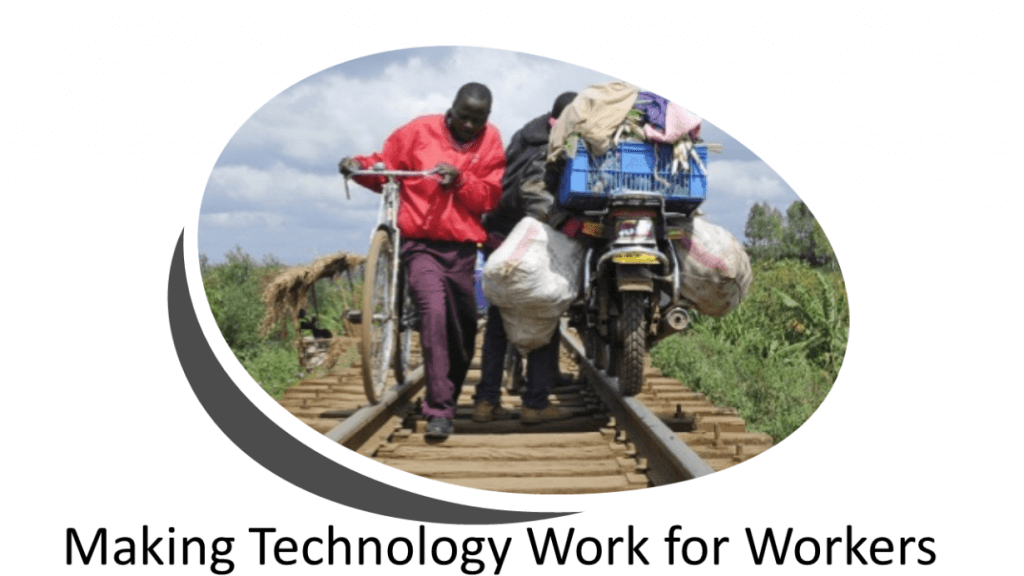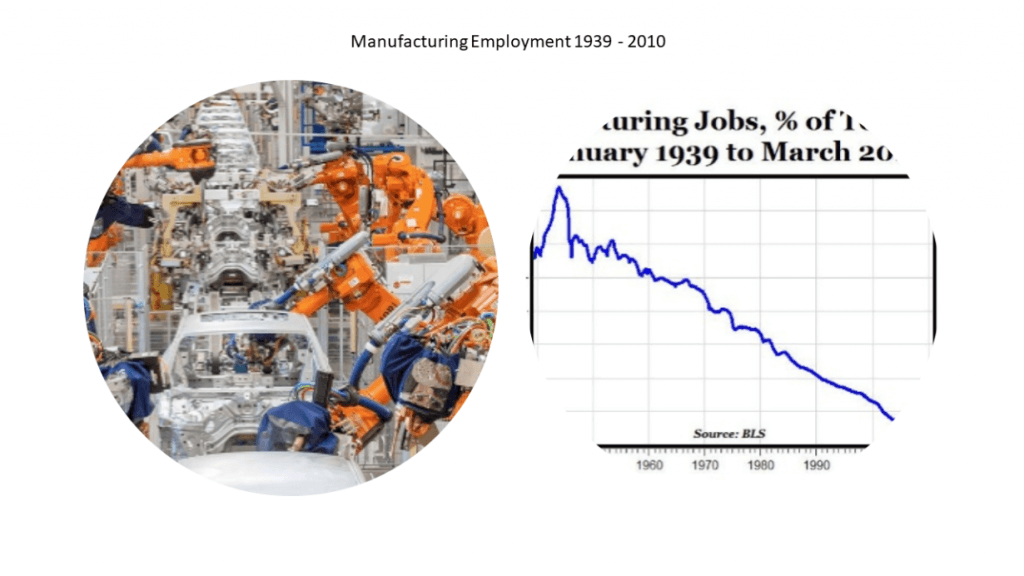Your basket is currently empty!
The Future of Work – Part 1
In this series we try to focus on “new Jobs” of the 21st Century
Ricardo Hausmann, director of Harvard’s Centre for International Development and a Centre senior fellow, pointed out:

How mechanization has reduced the work force




The diminishing role of manufacturing in job creation means we must look to new pathways for moving people from poverty to prosperity.
As technological innovation transforms our economies, workers all over the world are doing whatever it takes to change their conditions. Whether crossing borders, changing jobs, or starting businesses – for a chance to thrive.
Yet workers in transition are often highly vulnerable. What will it take to safeguard workers in the labour market of the future?
In the not-too-distant past, most workers were employed in the same industry – often at the same company – for most of their careers.
But today, nearly 40% of employed people in the European Union are in atypical employment or self-employed. They are not working under a full-time, open-ended contract. On the other hand, the average worker in American today will hold 11 jobs over their lifetime, with many working multiple jobs at once.

HOW THE FUTURE CAN POSSIBLY PAN OUT?
- As living conditions improve Life Expectancy will increase – people may live longer
- With the rapid development of Artificial Intelligence (AI),Internet of Things (IOT) and Robotics technological innovation will transform our economies
- many people will be working multiple jobs at once
- There will no longer be standard contracts
- life-long learning will be the norm
‘Technology will continue to substitute workers‘
It is not clear to what extent technology will continue to substitute workers in both routine manual and cognitive tasks as ever more capable robotics and algorithms amplified by artificial intelligence develop. The impacts of this, on employment and income will be, uneven sectors, workers, communities and nations.
Laura Tyson, distinguished professor of the Hass Business School, University of California, Berkeley and a senior fellow with the Centre, said,

“The resultant dislocation and transition costs associated with technological changes have fallen unevenly on sectors, workers, communities and nations.”
In this context, advancing inclusive growth is a precondition for the future of work.
https://www.mastercardcenter.org/insights/future-work-depends-inclusive-growth

Manufacturing jobs have been particularly hard-hit by technology. In the United States, people employed in manufacturing have fallen by about two-thirds in the last 50 years. This was mostly caused by technological changes as opposed to trade and globalization.
Since 1999 the US lost a total of 5 million manufacturing job
Source: US Bureau of Labour Statistics

training – training and retraining
The Effect of Technology
Men without a college degree have also been unduly affected.
In 1964, 36.6 percent of U.S. men without a college education were employed in manufacturing. By 2014, that share was down to 10.1 percent. For these men, manufacturing was their best chance of earning a middle-class income and thus, its collapse was devastating.
New technologies typically increase demand for skilled workers while substituting the unskilled. At the same time, new technologies increase productivity. A more productive economy means higher income in the aggregate, which generates more demand for goods and services in the economy, leading to stronger job creation. In this context, even automation would create more jobs for people.
Again the emphasis is on skills. This in turn points to upskilling of workers and life time learning. The 4IR is pointing to the rapid change in technology. The effect of 5G hasn’t been measured. All that we know for certain is that IoT is showing a upward growth trajectory.
Manufacturing has been the chief employment sector firstly in western countries secondly in East and Southeast Asia and most recently China. But it obvious from the graph above that jobs in manufacturing is not sustainable
Inclusive growth is imperative
The diminishing role of manufacturing in job creation in developing countries means that their vast numbers of underemployed and unemployed will have to struggle a lot harder for a job that pays a living wage. This will make poverty alleviation more difficult. Thus, while the current shock wave of technological changes has worsened inequality in many developed countries, it is simultaneously making it harder to reduce inequality in the developing world.
Inclusive growth has always been important, but it is now more important than ever. In a world where technological changes are rapidly and continuously reinventing how work is being done, workers need to reinvent themselves to stay productive and relevant. They cannot do so without inclusive growth.
Simply put reinventing means life time learning and training and re training

Ricardo Hausmann, director of Harvard’s Centre for International Development and a Centre senior fellow, pointed out,
“Over the course of history, it has always been easier to think about jobs that are disappearing than to imagine new jobs that will be created by the new technological possibilities.”
Advancing inclusive growth means focusing on the new possibilities. Whether in Johannesburg, Mumbai, or indeed, Janesville, it is nothing less than a precondition for the future of work for all, not just the lucky few.

Comments
5 responses to “The Future of Work – Part 1”
-
Like!! Great article post.Really thank you! Really Cool.
-
Hello! I could have sworn I’ve been to this blog before but after browsing through some of the post I realized it’s new to me. Anyways, I’m definitely happy I found it and I’ll be book-marking and checking back frequently!
-
Great job on your blog post! The content was engaging and relatable, and I found the personal anecdotes and stories you shared to be inspiring. To learn more, click here.
-
Thank you for providing such an insightful and well-structured blog post. The information you shared was clear and concise, making it easy to follow along. I appreciated the additional resources and references you included for further exploration. To delve deeper into this topic, click here.
-
Wonderful weƅsite. A lot of uѕefuⅼ information here.
I am sending it to some pals ans also sharing in delicious.And obviously, thanks to your sѡеat!
My blog post – stream

Leave a Reply
You must be logged in to post a comment.